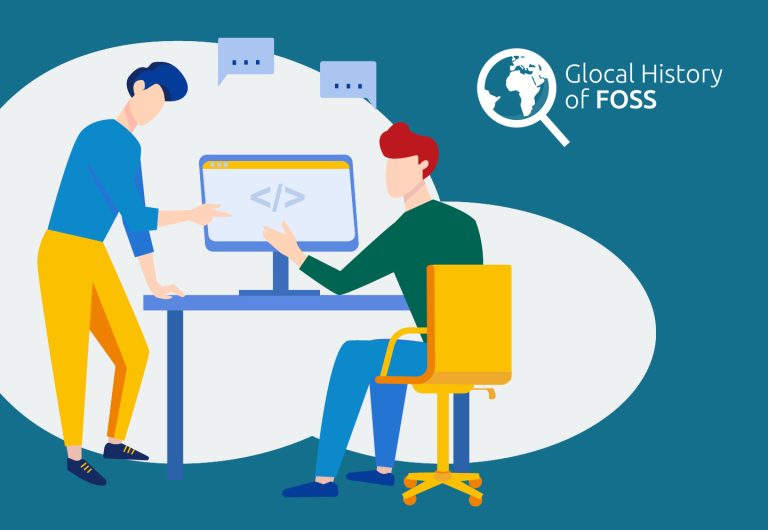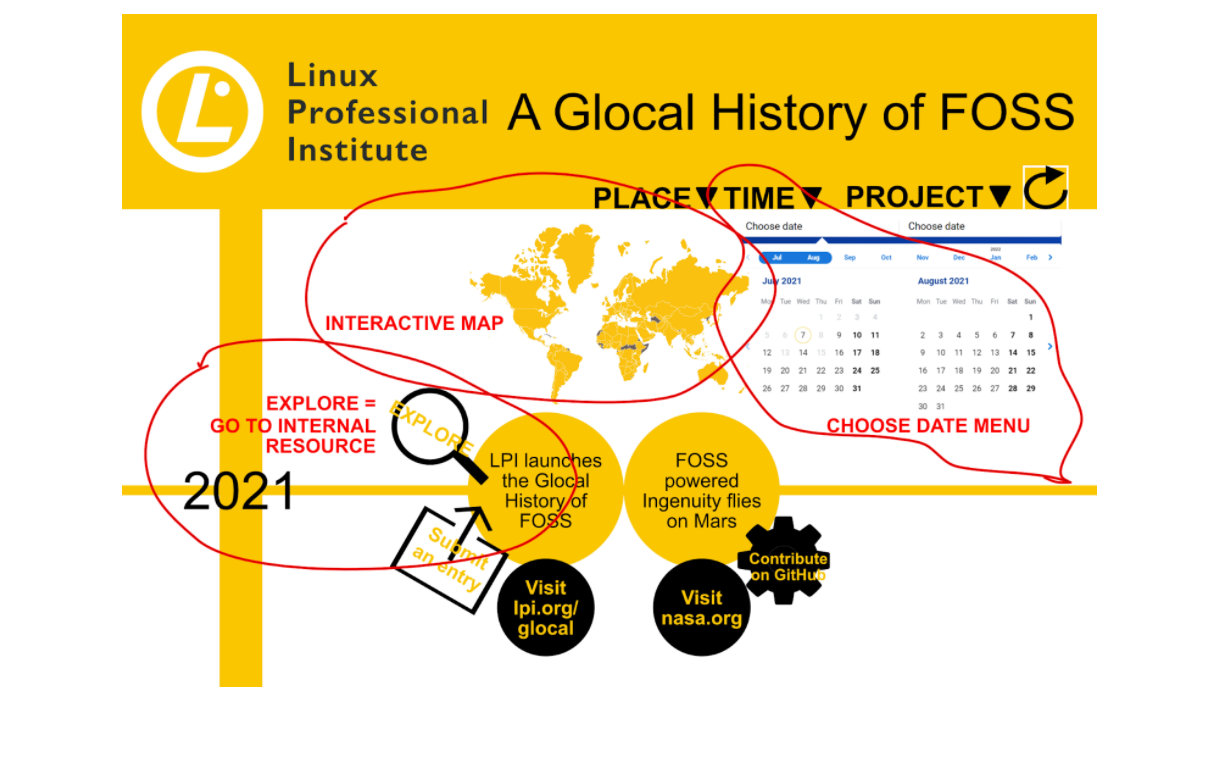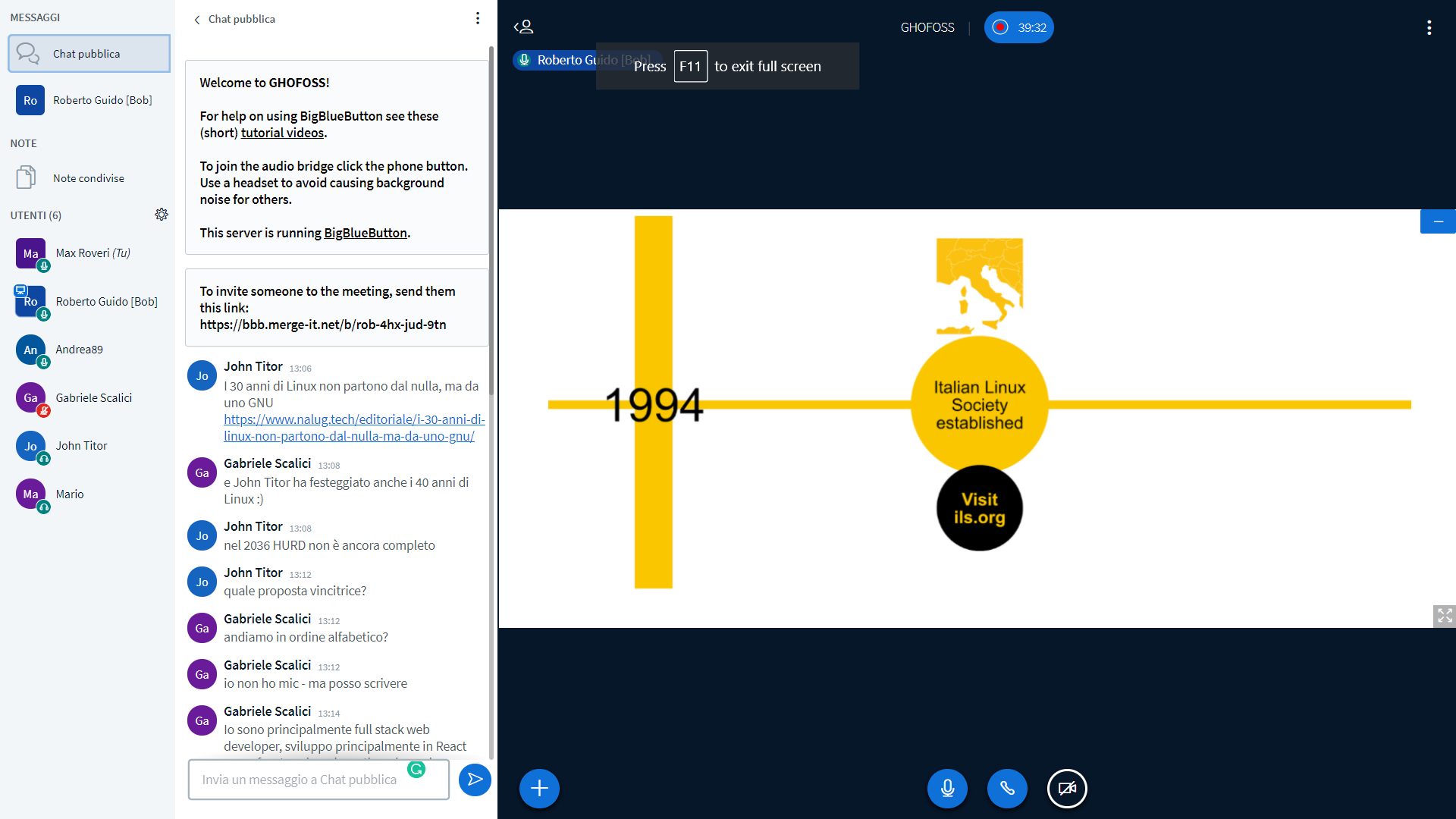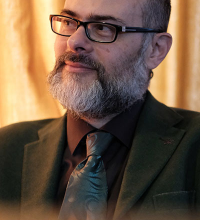A hackathon’s story: first GHOFOSS hackathon, Italy

Since the start of the project for an open history of FOSS, the Linux Professional Institute (LPI) defines it as a “glocal” one. By glocal, we mean the best possible mix of global and local history, stories, and initiatives.
Sunday, October 24th, we had a great glocal hackathon to support the project: GHOFOSS. This project was enhanced immensely by the participation of the Italian Linux Society (ILS), which recently joined LPI as a Community Partner. It was a logical consequence to apply the relatively new concept of Community Partner—designed by LPI for organizations with their own communities and partner groups—to a friendly relationship spanning more than two decades.
A “LinuxDay Italia” with a “tail”
The yearly apex of the relationship between LPI and ILS is LinuxDay, the Italian community celebration of all that constitutes Linux and FOSS. In 2020, LinuxDay had to become an online event. LPI was very happy to sponsor the event once again in such troubled times. For the 2021 edition, ILS decided to switch to a hybrid environment, with mainly online talks but local in-person events as well. This was what you could call a special edition: made even more special by the decision to dedicate a second day to a hackathon boosting our GHOFOSS project.

The first GHOFOSS hackathon: six hours of pure, productive nerdiness
At 2:00 PM CEST, we gathered at an online conference using the Italian Linux Society’s instance of Big Blue Button. (And yes: if you are not already aware of this open source virtual classroom platform, a great fit for virtual meetings, classes, and conferences, do take a look at it.).
The available raw material consisted of some data about Linux and open source events from a worldwide and an Italian point of view.
By the way: because GHOFOSS is an ongoing project, you can keep on contributing to it providing more data about the history of your own Linux and FOSS communities using these forms:
At the start of our meeting, we were prepared with a mockup simulating—even if just in a static way—what we want to achieve with GHOFOSS in terms of usability and usefulness. Our goal is an interactive experience that—almost literally—connects the dots. Those dots are, on one side, different places in the world; and on the other side, a specific time in what is going to be the Global+Local stream. We decided to use, as our T0, the seminal email from Linus Torvalds introducing Linux in 1991.
Roberto “MadBob” Guido, the President of the Italian Linux Society, started coordinating our hackathon’s participants in two teams: one committed (pun intended…) to the back end; the other to the front end. We had allocated six hours to finalize some sort of MVP.
I hadn’t attended a hackathon in ages. And it was my first online one. Not being a programmer (sometimes I define myself as diversely nerdy), a hackathon is always a potentially awkward environment to me. This time the level of awkwardness could have been even worse than usual because GHOFOSS is kinda my brainchild. For a second, I felt like when you leave your cat in the hands of the vet. But I was in good hands indeed.
The two teams immediately started analyzing what we had on the table. It was not long until some great suggestions came up. For example, about the format of data, the teams found ways to give them more consistency and coherence. A very good hint was to start thinking about our GHOFOSS data, our “atoms” of Linux and open source history, in terms of Schema’s categorization. The concept of Database Rights arose as well: one we’ll have to take into consideration once the body of data and number of contributors scale up.

I love when a hackathon comes together
Six hours we had, and six hours were very well spent, for six hours later we had our MVP.
You can find it here: https://ghofoss.madbob.org/. The Italian Linux Society’s GHOFOSS repository is on GitHub.
In this prototype, the backend infrastructure delivers the information related to the various historical events in API form, divided and browsable by geographic area. The front end provides a web client to present the information.
What’s next?
As mentioned already, putting our brains at work highlighted some issues we have to work on before scaling up. The next steps will address those issues, bringing a better organization of the data archive to make it richer and easier to consult.
Once the structure is stronger and more sound, we will be able to work further toward the internationalization of the client, and, on the back end, a set of filters making the actual data more usable.
Well, it sounds like another hackathon is not far away… because LPI is sponsoring DevOpsDays Vitoria in the state of Espírito Santo, in Brazil, on June 24th, 2022. Join us if you can!
